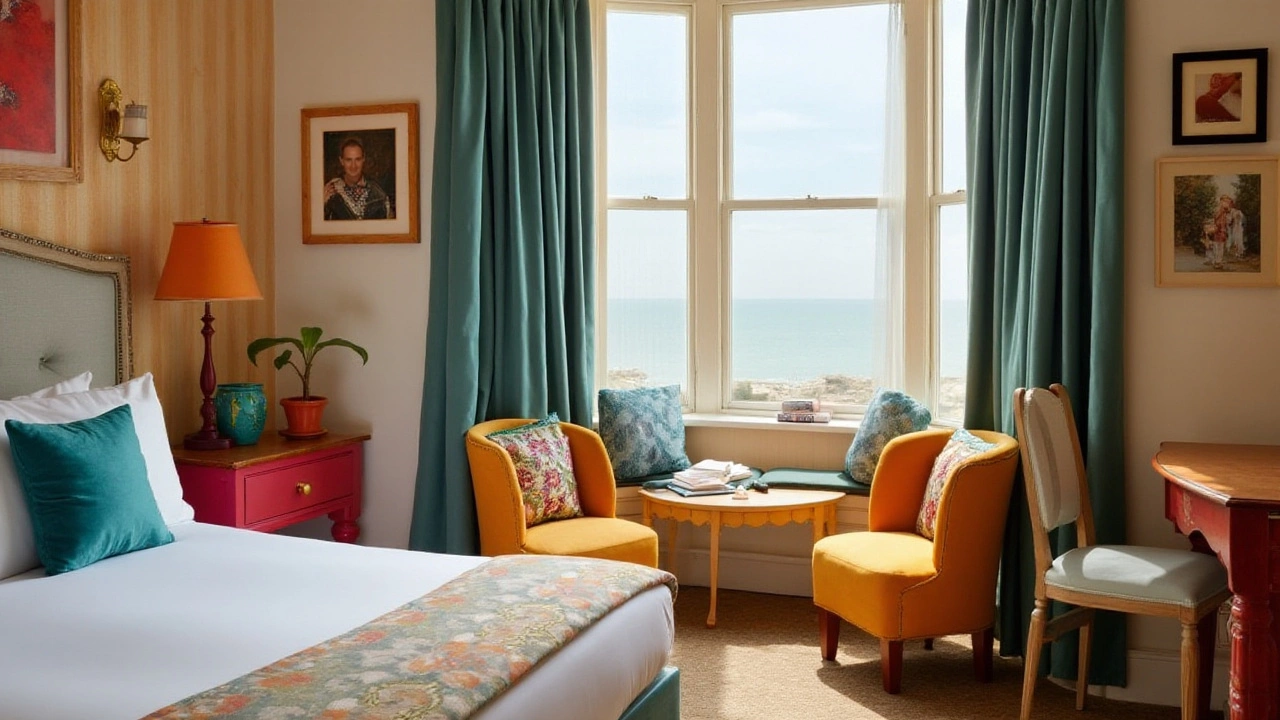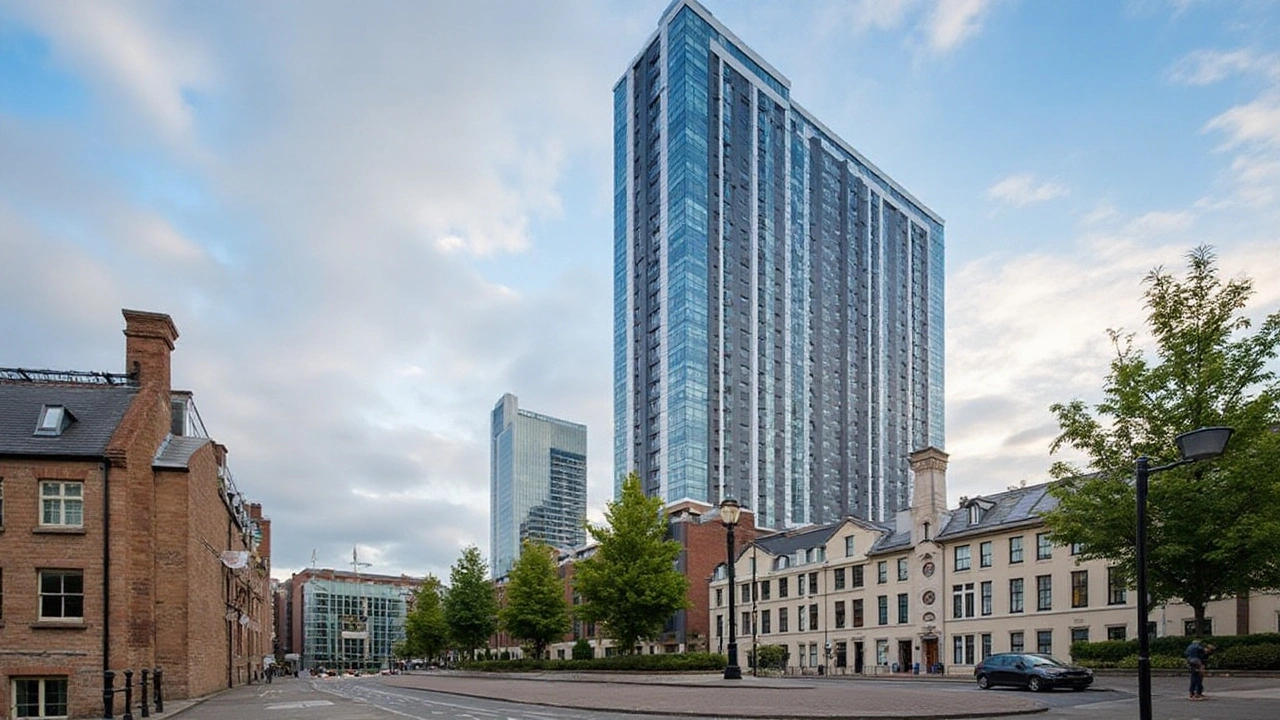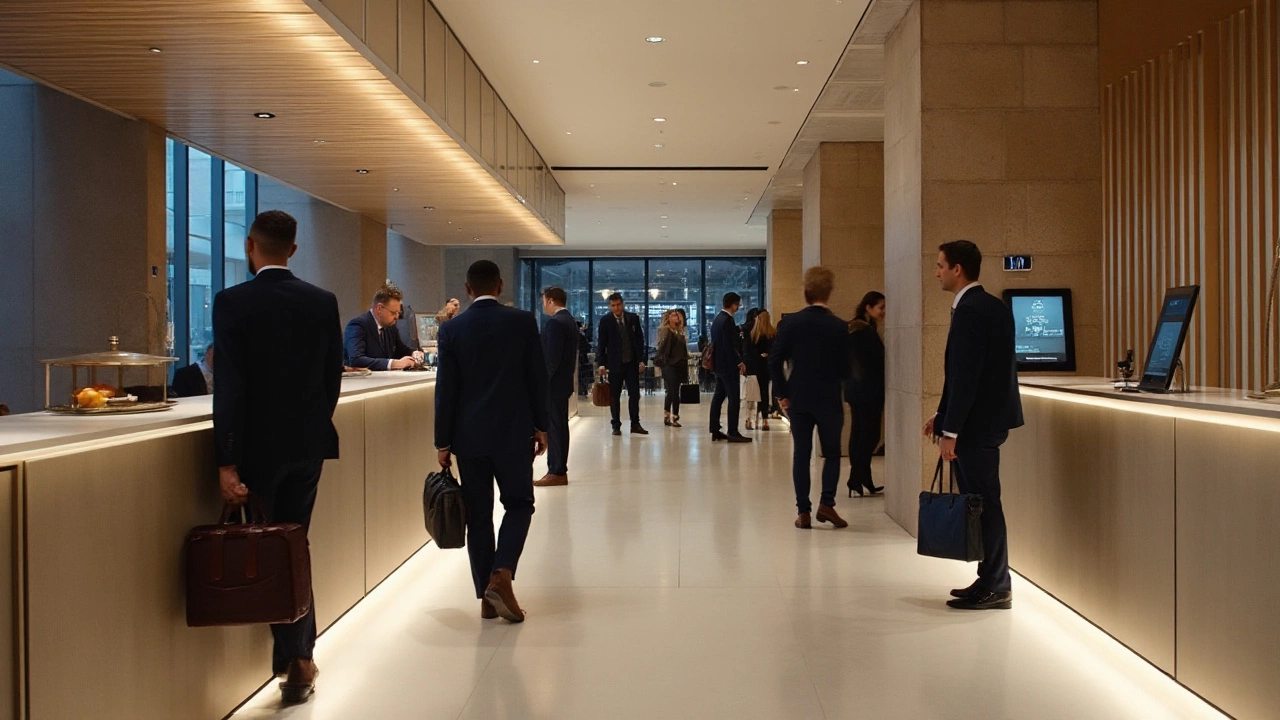In the diverse world of hospitality, two prominent hotel types frequently stand out: business hotels and boutique hotels. Each offers a unique flavor of stay, tailored to different traveler preferences and needs. Understanding what sets these two apart can significantly enhance your lodging choices.
Business hotels are designed with the working traveler in mind. They offer convenience, efficient service, and the facilities one might need during a corporate trip. From conference rooms to high-speed internet connectivity, these establishments are suited for those who have work on the agenda.
On the flip side, boutique hotels provide an experience that is all about charm, design, and personalization. Often smaller and independently operated, these hotels pride themselves on unique interiors, intimate atmospheres, and bespoke service tailored to each guest.
Navigating between these options involves more than just comparing amenities. It’s about matching the purpose of your stay with the right kind of accommodation. Whether you’re traveling for business or leisure, recognizing these distinctions helps in making an informed decision that suits your travel style.
- Defining Business Hotels
- Characteristics of Boutique Hotels
- Target Audience and Experiences
- Choosing the Right Hotel for Your Needs
Defining Business Hotels
Business hotels are essential fixtures in the globe-trotting agendas of corporate professionals. Typically located in bustling urban centers or near major airports, these hotels cater to the specific needs of travelers who seek efficiency and productivity during their stay. The hallmark of a business hotel is its provision of facilities designed to facilitate a seamless blend of work and relaxation. At a glance, you might notice the spacious lobbies adorned with chic yet practical furnishings, meant to serve as both waiting areas and informal meeting spaces. These environments are purposefully crafted to ensure guests can move from the fast-paced world of business into the comfort of their temporary respite with minimal friction.
These hotels are often equipped with essential amenities such as high-speed internet and state-of-the-art conference rooms capable of hosting anything from small team meetings to large-scale conventions. Entrepreneurs and business professionals rejoice over the availability of round-the-clock business centers, where tasks like printing, faxing, and access to computers become effortless. For after-hours relaxation or networking, these establishments may also offer upscale bars and eateries, giving guests the chance to mingle and unwind without the need to step outside.
The uniqueness of business hotels often lies in their ability to offer a balance between providing a sterile work environment and a comforting place to rest. As Diane Paulus, a well-known hospitality consultant, once said,
"Business hotels are not just about providing a bed and Internet connection; they're about creating an environment where productivity can thrive."This reflects the ethos behind every guestroom, which is meticulously designed to ensure serenity while offering tools like ergonomic chairs and spacious desks that cater to the working client's needs.
In today's tech-driven world, business hotels are also adapting by incorporating the latest technology to enhance guest experiences. Some have begun integrating smart room controls, allowing guests to customize their living space with ease, from adjusting lighting to setting the perfect room temperature. Others equip rooms with advanced digital assistants or provide app-based services for seamless room service and housekeeping requests, demonstrating how they remain at the forefront of technological adoption in the hospitality sector.
To better understand the scope of amenities offered by business hotels, a look at some notable chain examples reveals consistent dedication to service. For instance, the Marriott Hotel chain, renowned worldwide for catering to business travelers, showcases features like dedicated workspace lounges alongside leisure facilities to refresh the mind and body after long working hours. Similarly, Hyatt places emphasize select services such as onsite audio-visual setups, ensuring that tech presentations go off without a hitch. This commitment to marrying professional and recreational facilities underscores the essence of a business hotel, making it a preferred choice for those on corporate missions.

Characteristics of Boutique Hotels
Step into a boutique hotel, and you'll immediately sense the departure from the conventional hospitality experience. What distinguishes these unique accommodations is their ability to offer an intimate and distinct atmosphere. Unlike the uniformity often found in larger hotel chains, boutique hotels pride themselves on individuality and tailored guest experiences. This individuality often reflects the local culture, architecture, and history, creating a connection between visitors and their surroundings.
One defining feature of boutique hotels is their size. Typically, these hotels have fewer than 100 rooms, which allows for a personalized approach to service. Such exclusivity is key to the allure of a boutique hotel, fostering a sense of being a valued guest, rather than just another booking. The limited number of rooms enables staff to provide attentive, bespoke service, often leading to guests returning time and again for that personalized touch.
Aesthetically, boutique hotels are a feast for the eyes. Each room is often uniquely decorated, with attention to detail that echoes artistic themes or historical nuances. The design elements in a boutique hotel range from vintage and retro to cutting-edge modern, ensuring that no two stays are ever the same. Proprietors of these hotels often collaborate with local artists and designers to incorporate unique art pieces and decor, giving each property a one-of-a-kind character.
The service in a boutique hotel tends to go above and beyond the standard offerings, with amenities meticulously curated to enhance the guest experience. High-end toiletries, locally sourced snacks, and customized itineraries are common perks. Many boutique hotels also host events such as wine tastings, art exhibitions, or live music, adding layers to the guest stay experience. This emphasis on providing culturally rich, immersive stays sets boutique hotels apart in the crowded travel marketplace.
Dining in boutique hotels often follows the same philosophy of providing a unique experience. Menus are typically inspired by local ingredients and culinary traditions, prepared by chefs who often have a passion for innovation and quality. The dining spaces themselves are often designed to be cozy and inviting, encouraging guests to linger and socialize. This culinary focus ensures that guests do not merely eat but savor each meal as an integral part of the travel experience.
It's not uncommon to find boutique hotels in revitalized old buildings, which adds a layer of historical interest to the stay. The adaptive reuse of architecture not only preserves the charm of the structure but also contributes to sustainability, showcasing a commitment to environmentally friendly practices. According to a report by the Boutique & Lifestyle Lodging Association, the trend of adaptive reuse is expected to grow, as more travelers seek enriching experiences in character-filled properties.
"Boutique hotels are as much about the connection with the surroundings as they are about the amenities," shares Kim Solomon, a renowned travel writer. "They remind us of the joy of discovery, where every corner might hold a story waiting to be explored."
Ultimately, the essence of a boutique hotel lies in its ability to offer something more than just a place to sleep. It's about creating a memorable journey filled with unexpected pleasures and personalized service that tells a story all its own, making it a top choice for those seeking a travel experience that stands apart from the usual.

Target Audience and Experiences
The world of hospitality is vast and varied, catering to a wide array of tastes and preferences. When we speak about business hotels, it's clear they are designed with a particular clientele in mind—the business traveler. These are individuals who are often on the road, hopping from one city to another to attend meetings, conferences, and corporate events. This segment of travelers is seeking convenience above all else. They prioritize easy access to transportation hubs, efficient check-in and checkout processes, and amenities like business centers and meeting rooms. In this fast-paced lifestyle, the reliability of services, such as Wi-Fi and room service, is crucial. For business hotels, it's all about enhancing productivity and minimizing disruptions to a traveler’s work routine.
Conversely, boutique hotels attract a different kind of traveler. These guests might be tourists or leisure seekers who desire a more immersive and personalized experience. They often seek out accommodations that reflect the flavor and charm of the destination. A boutique hotel might offer a unique, theme-driven experience with designs inspired by local culture, history, or art. Guests often find that boutique hotels cater to the senses, with elements of surprise and local authenticity woven throughout the guest experience. This target audience is not necessarily in a rush; they prefer to savor each moment of their time away from home, enjoying carefully crafted meals and bespoke experiences.
Interestingly, while the target audiences for these two types of hotels might seem vastly different, there are overlaps. A modern entrepreneur might prefer the reliable facilities of a business hotel but opt for the intimate setting of a boutique hotel for a weekend getaway. The choice often hinges on the specific needs of the trip. According to a report by the Global Business Travel Association, there has been a 30% increase in business travelers opting for boutique stays when personalizing their travel experiences.
"Travelers today are seeking unique experiences—they want hotels that tell a story," shares Samantha Cheng, a travel and hospitality analyst. "The line between business and leisure travel is blurring, opening up a shared audience for both hotel types."
The decision to choose one style over the other can frequently boil down to the sought-after experience. Are you in town for an important meeting, where every minute counts, or are you exploring a new city, eager to dive into its culture? Each hotel type offers distinct benefits customized to meet these varying expectations. Whether it's the consistency and reliability of a business hotel or the bespoke and localized charm of a boutique hotel, understanding the specific target audience and experiences can greatly enhance the travel planning process.

Choosing the Right Hotel for Your Needs
Finding a hotel that aligns with your travel requirements can be an adventure in itself. With so many options on the table, it's important to weigh your personal preferences along with practical considerations. For business travelers, efficiency and accessibility are key. Proximity to business districts, meeting facilities, and transportation can make a business hotel the ideal choice. Many business hotels offer shuttle services to airports or business hubs, making daily commutes less stressful. On the other hand, travelers looking for a more personalized experience may lean towards a boutique hotel. These hotels often embrace a theme or a unique architectural design, which can add a touch of flair to your stay. But remember, every hotel isn't just about the architecture or the free breakfast buffet. Often, boutique hotels focus on providing bespoke service, ensuring each guest feels special and remembered.
Let’s break it down further. Imagine a business trip filled with back-to-back meetings; you would likely prioritize a hotel offering fast internet, quiet workspaces, and perhaps an executive lounge for unwinding. In contrast, a boutique hotel provides an eclectic mix often paired with artful details such as custom decor or curated local art pieces — ideal for leisure guests seeking inspiration and relaxation. It's about creating a memorable experience that resonates with your stay’s purpose. Interestingly, according to a survey by a noted travel association, around 60% of travelers stated that a hotel’s uniqueness significantly influenced their overall experience.
"Stay true to your taste and intentions when choosing your accommodation," advises travel expert Jane Smith in the annual Traveler's Digest. "Whether it’s the charm of a boutique hotel or the pure functionality of a business hotel, find what suits your trip's essence."When you're unsure, it's beneficial to know what each option offers. Think about a business hotel providing a seamless check-in process, speedy room service tailored to late-night cravings, and gym facilities open around the clock. A boutique hotel might charm you with communal spaces perfect for socializing, organic toiletry options, and often, a distinctive restaurant overlooking the city skyline or a beautiful garden.
You may also want to consider the tech amenities you need. For those who can't leave work entirely behind, business hotels often feature an array of tech gear — think of it as a workspace away from the office. Some now offer mobile check-ins or smart rooms you control with your smartphone. Meanwhile, staying at a boutique hotel might mean going slightly off the grid to enjoy your trip with fewer digital interruptions. It's not just a stay; it's an experience that aligns with your travel goals. Whether it involves dressing up for a bustling conference or lounging in a cozy retreat, knowing your priorities steers your decision wisely.

